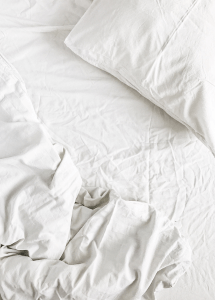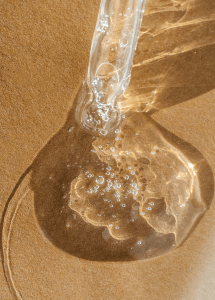Common Causes of Low Energy – And What You Can Do About It

Low energy levels are something that many people struggle with throughout their lives. Sometimes the reason for our low energy level is obvious, but other times it can take a little bit of work figure out the root cause. This article will shed light on some of the possible causes of low energy, and what you should do if you’ve been experiencing low energy levels.
Common Causes of Low Energy
 Poor sleep
Poor sleep
Poor sleep is definitely at the top of the list, but just because this factor seems obvious doesn’t make it an easy problem to solve. The causes of poor sleep are lengthy, and can include stress, a disruptive sleep environment, physical pain, hormone imbalances, shift work, sleep apnea and other sleep disorders, alcohol, overuse of stimulants, and so much more. If you want to focus on learning more about sleep, we suggest checking out some of our sleep-focused articles on our blog here.
Stress
Stress – especially chronic stress – is exhausting. While acute stress may increase your “fight or flight” hormones and even make you feel less fatigued, if stress levels consistently stay high over time, the body undergoes a hormonal shift that can leave you feeling depleted. Long-term stress triggers your adrenal glands to release a hormone known as cortisol, and elevated cortisol can, over time, disrupt everything, from sleep to energy to metabolism.
 Anemia
Anemia
Anemia is a general term for not having enough blood or blood cells to carry oxygen or nutrients around your body. Anemia can happen from excess blood loss (like heavy periods or an ulcer), nutrient deficiency (like low iron or low B12), pregnancy, some chronic health conditions, and even some surgeries.
Hormone imbalances
The most common hormone imbalance leading to low energy is low thyroid hormone, and one out of every eight women will develop thyroid disease in her lifetime. One function of thyroid hormone is to regulate cellular energy production – so if your thyroid hormone levels are low, you’ll feel fatigued. Other hormone imbalance such as low estrogen and low testosterone can also contribute to low energy.
Chronic Pain
Chronic pain can contribute to poor energy levels in more than one way. Many kinds of pain can disrupt sleep and contribute to inadequate hours of sleep and poor sleep quality. Many kinds of chronic pain are also associated with higher levels of inflammation in the body – but even when you take disrupted sleep out of the picture, chronic pain is generally associated with fatigue. [1]
 Poor Nutrition
Poor Nutrition
While we already mentioned anemia, it’s worth emphasizing that your body needs good overall nutrition from healthy sources of carbohydrate, protein, and fat to create energy for your body and brain.
Toxic Relationships
You may have had the feeling that stressful relationships drain your energy, and you’re probably right! Toxic social relationships have a negative impact on both mental and emotional health and can lead to increased levels of inflammation in the body. At least one study has shown that this can, in turn, lead to low mood, fatigue and social withdrawal. [2]
 Hydration
Hydration
Water is critically important to human health and is involved in nearly every chemical reaction in the body, so it’s not surprising that being dehydrated might be a drain on your energy levels. Poor hydration has long been known to contribute to physical fatigue and exhaustion, and while this phenomenon has mostly been studied in athletes because they can become dehydrated much more rapidly with intense exertion, it applies to everyone. Dehydration affects up to 30% of older adults, and even mild dehydration can cause symptoms of fatigue and weakness. [3]
If you are struggling with low energy, it’s never a bad idea to start with checking in with your health professional, because simple tests can help to rule in or out things like anemia or low thyroid. Equilibria also has a plethora of resources here to support you – a great place to start is with our wellness quiz, or you can jump right in and schedule your first complementary wellness coaching session with one of our Certified Wellness Coaches here.
References:
[1] Løke D, Løvstad M, Andelic N, Andersson S, Ystrom E, Vassend O. The role of pain and psychological distress in fatigue: a co-twin and within-person analysis of confounding and causal relations. Health Psychol Behav Med. 10(1):160-179. doi:10.1080/21642850.2022.2033121
[2] Slavich GM, Irwin MR. From Stress to Inflammation and Major Depressive Disorder: A Social Signal Transduction Theory of Depression. Psychol Bull. 2014;140(3):774-815. doi:10.1037/a0035302
[3] Miller HJ. Dehydration in the Older Adult. J Gerontol Nurs. 2015;41(9):8-13. doi:10.3928/00989134-20150814-02